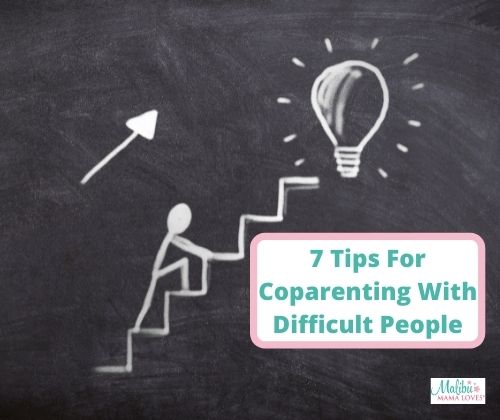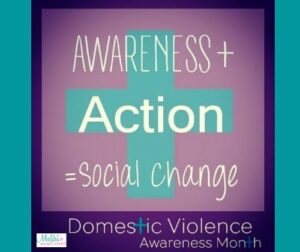7 Tips for Coparenting With Difficult People
Let’s just face it, coparenting even if the coparents get along great, is hard and filled with compromise, making being a single parent that much more fun. Add in emotion + one person being difficult and coparenting becomes a recipe for disaster. Unfortunately, we have no choice but to continue trying our best on coparenting with difficult people for the benefit of our children.
Coparenting with Difficult People
Being a very hands on step-mom, I had to learn quickly how to coparent in a way that would benefit the kids who had very angry coparents. Later when we had added two more of our own kids to the mix and things didn’t work out with our marriage, I found myself again learning how to coparent in a challenging situation. As my kids and I came out of the darkness and into the light, I have tried so many different ways of communicating in the best interest of them.
Because no matter what, the other parent is their other parent. And as long as no physical/sexual abuse is going on, then we must do what we can to protect our children’s mental health by keeping the peace as much as possible while standing up for ourselves.
After years of coparenting in various situations and working with many parents who coparent with difficult people AND doing a ton of research, trial and error – I have noticed patterns and behaviors that if you are aware of them, you can learn the tools shared here to get through them without hesitation. Check out these top tips for coparenting with difficult people!
BUT WAIT!! First read up on difficult people. Understanding is key to being able to navigate around these people effectively. Read this post on the 4 types of difficult people, this post on NPD, this post on tips for difficult people! Do a little google search, learn as much as you can! And then –
7 Tips For Coparenting With Difficult People
- Don’t Acknowledge The Trash Talker. The difficult parent often times will sling as much trash talk as possible to anyone who will listen – including the kids. They may roll their eyes at you or when your name is mentioned, keep their back turned on you in person, refuse to look you in the eye when talking or get angry when a child mentions you. This only hurts the kids so DO NOT GIVE IN TO IT! When the kids hear/see these things they become confused on who they should side with thus diminishing their security, confidence and trust abilities. They need a safe haven from it, and one day they will grow up and realize just who their safety was.
- Tool – address this with the courts or mediator or therapist in charge of your child’s mental health. Make sure the coparent understands the damage they are doing to the child. Then take the high road. Let their trash talk go in one ear and out the other and be the better person. It is just nonsense anyway, rise above it! Be the safety net your child needs.
- Don’t Engage in The Blame Game. In this game, the other parent blames you for everything – rashes, grades, having to pay bills, your child’s temper tantrums, the temperature of the day outside… you name it, they blame you for it. It just shows your former partner is still triggered by your existence and is probably holding onto anger from the relationship – unwilling to admit they may have had something to do with it!
- Tool – breathe, tell them you are sorry they feel that way and stick to the facts of what needs to be discussed! DO NOT ARGUE with them, this will only satisfy and encourage more of the same. Instead, reframe as I suggested above and stick to finding solutions to the things that need to be solved. Let the accusations just fly right past you – you are better than that!!
- Don’t Encourage The Silent Treatment. Many difficult parents will just say no and stop communicating (I deal with this all the time) as a way to control thinking I’ve said no and that’s that – no resolution needed. Wrong! Sometimes this can cause a complete breakdown of communication because often the other parent will follow in suit and important things for the children get missed. Do not go down this road, it is silly – communication is a must.
- Tool – accept the first attempt to communicate did not work and try again in a different, respectful way. Keep trying as the silent treatment is the adult equivalent to having a temper tantrum – they almost always calm down and come around when you continue respectful, kind communications.
- Don’t Participate with “You can’t make me” & Solo Decision-Making Thinking. This can often land one in trouble. When the difficult coparent starts this line of thinking, they determine their own rules and do as they will without any communications. This only hurts and confuses the children more. Making a solid custody agreement and having it in place helps with this. If you have one and they still do not cooperate, you may have to step up requests for help to the courtroom.
- Tool – If you have tried respectful communication and are getting nowhere, you may need to file for mediation or to get in front of the judge for help with your custody order.
- Don’t Withhold or Punish. There is a venue for that – the court room. Do not take matters into your own hands, this almost always ends in disaster and really does hurt the children. If this is being done to you, you may need to file with the court, they take these things very seriously.
- Tool – the courtroom. They have great self-help volunteers who can give you everything you need to protect your rights.
- Do Accept That Your Ex Won’t Change. They are who they are. Try to accept and understand them so you can help your children navigate through their journey.
- Tool – honest, calm communication with your children.
- Do Be An Example. Treat the difficult parent as you wish to be treated, lead by example. Communicate with peace, respond peacefully. It can’t be very nice be angry all the time, so don’t be. Let them be and you keep spreading your kindness.
- Tool – breathing, meditation, prayer, exercise and appreciating all you have to live for. Use these tools to keep your calm head about yourself when coparenting with difficult people. Be the leader you were born to be, for your children.
Coparenting with difficult people is really hard. Your mindset is the most important tool we have to get you through it. Remember to keep communications respectful and on point, don’t sink down too their level and that your children will grow up faster than you think and will be able to see/know the truth then.
Because the truth always does have a way of coming out, we just need to be patient!
Cheers,
Malibu Mama Loves Xx



 Hi There! Let's Share ✩ Explore ✩ Awaken together! I’m a Mama, published author, biohacker, and trauma-informed life coach raising conscious kids who truly appreciate our world through travel. Welcome to the Malibu Mama Loves Conscious Living Lifestyle!
Hi There! Let's Share ✩ Explore ✩ Awaken together! I’m a Mama, published author, biohacker, and trauma-informed life coach raising conscious kids who truly appreciate our world through travel. Welcome to the Malibu Mama Loves Conscious Living Lifestyle!




 Ready To Turn Your Trauma Pain Into Purpose? Join Our FREE Masterclass Click
Ready To Turn Your Trauma Pain Into Purpose? Join Our FREE Masterclass Click 


